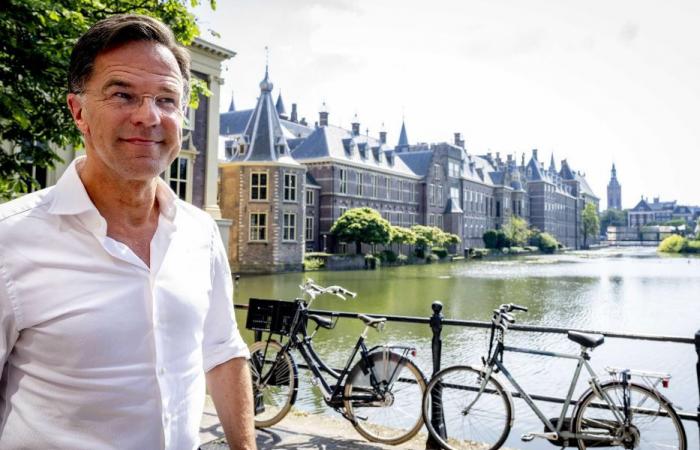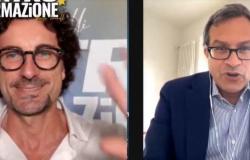The most mischievous did not miss the 2.05 percent achieved by the Netherlands in 2024, after years in which the country’s defense spending remained strictly below the fateful threshold of 2%. A “flash” from Mark Rutte the “pragmatist”. The longest-serving prime minister in Dutch history, 14 years at the helm of the Netherlands, is the new Secretary General of NATO.
Rutte’s inauguration is scheduled for October 1st, when his predecessor, the Norwegian Jens Stoltenberg, will leave office and chair after a decade. «It is a great honor to be appointed Secretary General of NATO. The Alliance is and will remain the cornerstone of our collective security. Leading this organization is a responsibility I do not take lightly. I am grateful to all allies for placing their trust in me. I look forward to taking on the role with great vigor,” the newly elected member wrote on X. Rutte, with the support of the USA and Great Britain, had a good job, with intense diplomatic work, in convincing the 31 leaders. The only empty box was that of the Hungarian prime minister, Viktor Orbán, who capitulated on June 18th, thus unblocking, as Politico wrote, Rutte’s nomination.
Greeted by jubilation from Ukrainian President Voldymyr Zelensky – who called him “a strong and principled leader” who “has demonstrated his resolve and vision on many occasions in recent years” – the new secretary, 57, according to the unanimous opinion of analysts, will not deviate from the political line already traced by his predecessor, that is, a strong, rock-solid support for Ukraine. It is no coincidence that Stoltenberg praised her: “Mark,” he said, “is a true transatlanticist, a strong leader and a consensus builder. I know that I will leave NATO in good hands.”
There is, however, an unknown that weighs on Rutte’s path and which will only be resolved after the US vote. What impact will Donald Trump’s eventual victory in the next presidential elections have on the stability of the Atlantic Alliance and, consequently, on the war in Ukraine? The range of threats addressed to NATO, launched over the years by the tycoon, range from Washington’s exit from the Alliance to a reduction in funding. Not only that: as “Le Monde” writes, «during the electoral campaign the unstable former reality star shook her Atlantic allies by saying that she would encourage Moscow to attack countries that do not spend enough on defense».
Rutte has on his side, in addition to an excellent relationship with Joe Biden, also the ability, recognized by many, to know how to deal with the intractable Trump. At the 2018 NATO summit, Rutte successfully engaged with the tycoon to ease tensions over defense spending, demonstrating his ability to manage the former US president’s unpredictable style. On the other hand, as the website The Conversation writes, «the Dutch prime minister’s pragmatic ability to build and maintain coalitions in a politically fragmented landscape is often considered a hallmark of his leadership».
Another minefield is the eastern one. Because it does not escape observers that NATO’s real “game” is the one being played with (or against) Beijing. It is no coincidence that China has repeatedly expressed intolerance for NATO’s protagonism, for the role and the verbosity with which Stoltenberg interpreted his role at the helm of the Alliance. The last episode is “very fresh”.
“The West must make China pay for helping Russia in its aggression against Ukraine,” Stoltenberg hissed, speaking at the Wilson Center in Washington before a meeting with Biden on June 17. Beijing responded by inviting NATO to “stop shifting the blame” to others for the war in Ukraine. Finally, the newly elected will have to deal with the rebellious front: the rise of nationalist and populist movements in the NATO member states. If Rutte’s designation was accompanied by a chorus of approval from the member countries, a completely different tune sounded, as expected, from Moscow. For Kremlin spokesman Dmitry Peskov «it is unlikely that this choice will change anything in the general line of NATO. At the moment, this is an alliance that is an enemy for us.”






